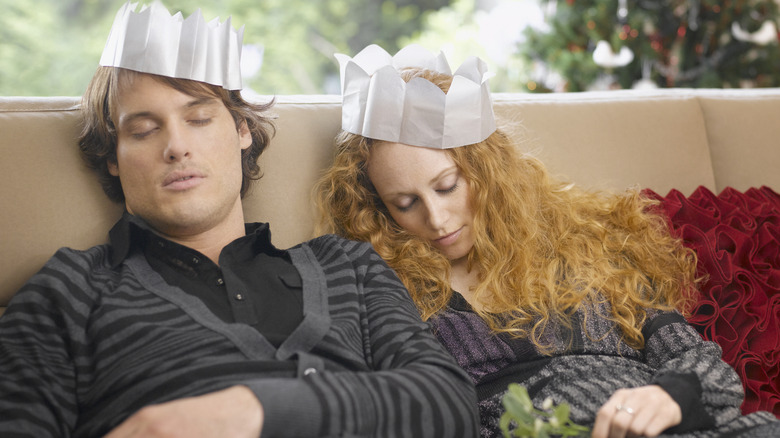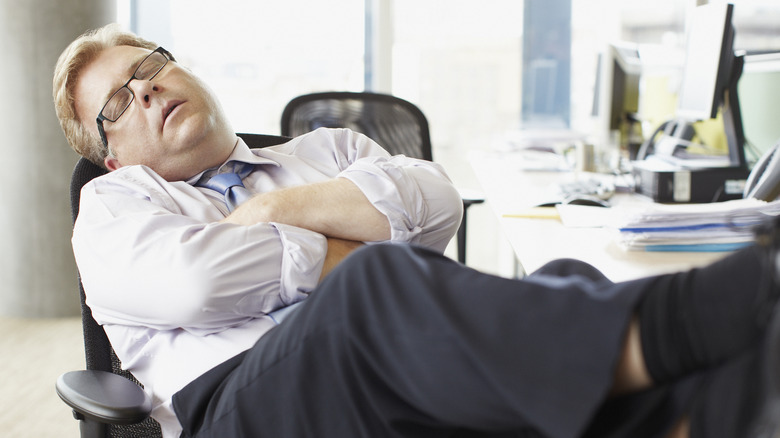Our Doctor's Best Tips For Beating Post-Meal Fatigue
A good meal with friends or family can bring cherished memories, exchanging stories and laughter while feasting on savory fare and succulent desserts. Getting up after eating a large meal can be difficult, though, and the last thing you'd want to do is go for a run, although you feel you need it to burn off those calories. In fact, a big meal often makes you want to collapse on the couch and watch television before going to sleep.
Sometimes, you could feel post-meal fatigue earlier in the day, when taking a nap isn't as possible or convenient. You could find yourself drifting off during your mid-morning meeting or a late-afternoon conference call. Post-meal fatigue occurs typically after a large meal, according to Dr. Jason Singh, Chief Medical Officer and Physician at One Oak Medical, in an exclusive interview with Health Digest. He says foods that are high in fat and carbohydrates trigger post-meal fatigue because they direct blood to the digestive tract.
"A good way to combat this is to take a short walk to help guide blood back to the brain and muscles," he suggests.
Why post-meal fatigue happens
Singh says post-meal fatigue occurs for three reasons. "The first is that blood flow is diverted to your GI tract to help digest food and absorb nutrients which leaves less blood flow for the brain and muscles which can make you feel tired." The second reason why you can become tired after a meal is that your body releases insulin to handle the glucose released into your blood. You could feel drained because your body needs energy for this process to take place.
"[The] third mechanism is that eating increases serotonin levels which is a neurotransmitter responsible for relaxation and sleepiness," Singh explains. "All these processes compound on one another which can promote post-meal fatigue."
According to the Sleep Foundation, certain foods will make you more sleepy. Turkey is famous for its fatigue-inducing tryptophan, but milk, bananas, and oats also have tryptophan. While just eating a few ounces of turkey won't serve as a nighttime lullaby, carbohydrates such as bread enhance tryptophan's effects.
Other tips for dealing with post-meal fatigue
If you've had a heavy breakfast or lunch, you can beat post-meal fatigue by going outside. "Fresh air and sunlight exposure increase oxygen and vitamin D for energy," Singh says. He also suggests a bit of caffeine for a little boost. However, you'll want to avoid caffeine later in the day so that you can get adequate sleep. A 2013 study in the Journal of Sleep Medicine found that consuming caffeine within six hours of bedtime can interfere with sleep.
"From a prevention point of view, I recommend eating smaller and more frequent meals throughout the day for lesser demand on digestion at one time," Singh advises. "Limiting high fat and starchy carbs which also take longer to digest. Also, staying adequately hydrated as dehydration can exacerbate fatigue."
The Sleep Foundation said that if you're prone to post-meal fatigue, it might mean that you're probably already tired from your day-to-day routine. Adding some exercise to your daily schedule can give you a little more energy in your day. Getting enough rest at night might also prevent post-meal fatigue.



